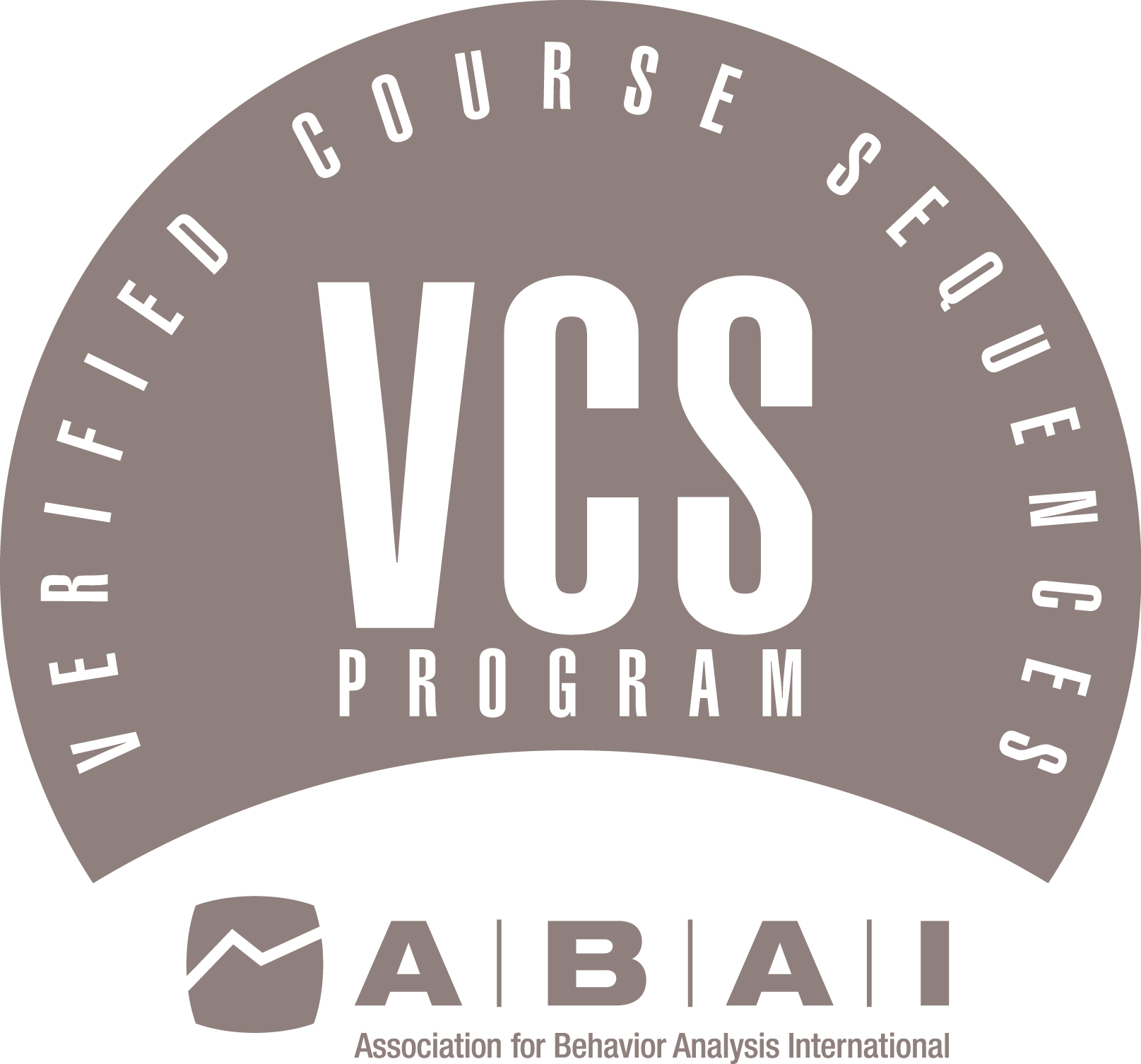
Mission
The Master of Arts in Applied Behavior Analysis is designed to provide students with knowledge and experience in applying the science of Behavior Analysis to a variety of areas in society. In addition, students will be prepared to become a Board Certified Behavior Analyst® (BCBA®). Our graduate program reflects the balanced integration of theory, research, and practice inherent to the behavior analytic approach. We train our students to apply critical thought to practice, ensure that their clinical work is informed by the research base of empirically-validated treatments, and evaluate client progress frequently. Our program provides an unusual balance of knowledge in theoretical, applied, and experimental domains. In addition, our program arranges for close mentoring by Faculty who represent the spectrum of Behavior Analysis.
Degree Requirements (40 units)
The Association for Behavior Analysis International has verified the following courses toward the coursework requirements for eligibility to take the Board Certified Behavior Analyst® or Board Certified Assistant Behavior Analyst® examination. Applicants will need to meet additional requirements before they can be deemed eligible to take the examination.

-
Verified Course Sequence
PSYC 5025 - Research Methods in Behavior Analysis 3 units
PSYC 5055 - Foundations of Behavior Analysis 3 units
PSYC 5080 - Legal and Ethical Issues 3 units
PSYC 5090 - Behavioral Assessment 3 units
PSYC 5640 - Conceptual Issues Behavior Analysis 3 units
PSYC 5750 - Advanced Applied Behavior Analysis 4 units
PSYC 5870 - Behavior Analysis of Personnel Supervision 3 units -
Additional Courses
PSYC 5065 - Experimental Analysis of Behavior 3 units
PSYC 5150 - Clinical Interventions with Families and Individuals 3 units
PSYC 5930 - Practicum in Behavior Analysis 3 units
PSYC 5990 - Masters Thesis 1-3 unit(s)
Any 3 additional units of Graduate PSYC coursework 3 units
Note: No more than 9 units of graduate credit can be transferred from work taken while in unclassified status. The 9-unit limit may also apply to any graduate work transferred from other institutions. If students complete all required coursework but have not completed their thesis, they must be continually enrolled in at least one thesis unit (either PSYC 5990 or PSYC 7005) until their thesis is completed.
Culminating Experience Requirement
To obtain their master’s degrees, students must complete a thesis within the time limits set by the University. Students should also check with the graduate office for their minimum requirements regarding the formatting of the thesis document. The thesis is an empirical study designed in collaboration with the student’s thesis chair. The thesis document has specific guidelines, the writing of which is organized around chapters titled Introduction, Methods, Results, and Discussion.
Goals for our Students
-
Demonstrate understanding in the theoretical and philosophical aspects of the analysis of behavior.
-
Apply the principles, techniques, and methodologies of behavior analysis in hands-onexperience settings.
-
Conduct original research that contributes to the knowledge base of behavior analysis.
-
Develop problem-solving skills related to legal and ethical issues regarding the application of behavioral principles and clinical interventions.
-
Demonstrate understanding of how the science of behavior analysis can be applied to a variety of areas in society.
-
Meet the academic requirements for professional careers as a Board Certified Behavior Analyst® (BCBA®).
-
Function effectively with other professions in traditional psychological settings.
Minimum Prerequisites for Admission
A Bachelor of Arts or Bachelor of Science degree in Psychology or related field and completion of the prerequisites with a grade of B or better.
Prerequisite courses:
-
One upper-division course in Experimental Methods and Design (PSYC 3000 or equivalent)
-
One upper-division introductory course in Applied Behavior Analysis (PSYC 3700) or Experimental Analysis of Behavior (PSYC 4720)
-
And one other upper-division psychology course with a behavior analytic component (PSYC 3610, 3700, 4720, 4725, 4750, 4790).
Minimum Requirements for Continuation
-
Maintenance of a 3.0 grade point average in all courses attempted.
-
Satisfactory progress toward the degree, which includes successful completion of coursework and thesis.
-
A classified graduate student in Psychology will be dropped from classified standing upon receiving more than three units of graduate study graded less than B-. However, any graduate student may retake a course graded less than B for a higher grade, and a classified student must remove such grade deficits (in excess of three units) in the next semester or petition the Graduate Committee for a time extension if it is impossible to make up the deficit. In no case will more than three units of graduate study graded less than B be counted towards a Master's degree.
-
Other requirements may be stated in University and Departmental Guidelines for Academic Probation and Termination. The student is responsible for obtaining current copies of these regulations and complying with the criteria listed
Updated: August 02, 2023